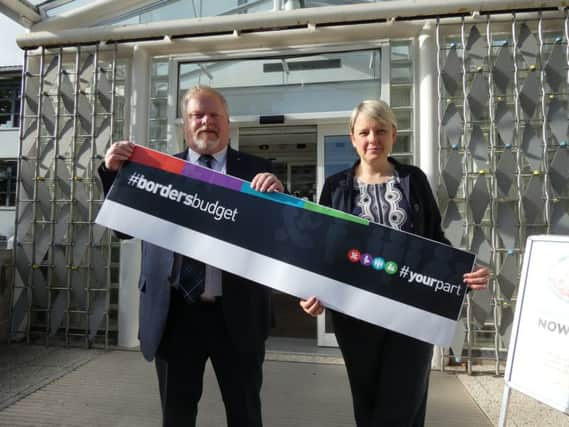Public is to have a go balancing the books


Many will find the expected annual increase of at least 3% each year hard to swallow, given the fact that the council is, at the same time, looking to deliver savings of more than £5m a year in that time.
However, Borderers will have the chance to inform the council how they would prioitise services if it was up to them.
Advertisement
Hide AdAdvertisement
Hide AdThe online points simulator tool at https://scotborders.prioritysimulator.com will allow users to pinpoint where they believe services should be protected or delivered differently, while still staying within the budget.
The results of the consultation, which ends at the end of January, will be used as part of the budget setting process.
Executive member for finance, councillor Robin Tatler, said this was the very start of the budget process, but it was fairly clear that council tax would have to go up.
He said: “At the moment we start on the basis of a 3% increase, because that’s what we agreed as part of the five-year budget we set last year.
Advertisement
Hide AdAdvertisement
Hide Ad“We will have to see what the funding situation is from the Scottish Government. It’s likely to be a flat cash settlement, which actually means a reduction once you take away inflation and other costs, so it could change.
“Over the last couple of years we have managed to save £20m, but we still have a challenge of finding another £30m of savings over the next five years.
“It’s an ongoing challenge when it comes to setting our budget, with a huge number of demands across a wide range of services.
“We remain ambitious, though, and while we do have challenges, we still have a five-year revenue of over £1.4billion and a £386m 10-year capital budget.”
Advertisement
Hide AdAdvertisement
Hide AdLaunching the consultation, council leader Shona Haslam said: “There is no denying it is very difficult to balance the books every year, especially when we have increased demand for services, an increasing older populationand services spread across such a vast rural area.
“The savings we need to make – £5m a year for the next five years – is not going to be easy, so we need to consider where we spend money, how we do things differently and what we simply can’t deliver any more.”
At the lauch of the consultation on Monday, the local authority’s chief financial officer David Robertson highlighted some of the main reasons why money is going to be tight.
He said: “It is becoming increasingly difficult for councils to remain financially sustainable under the current service delivery models, and that, fundamentally, means we have to look at different ways of doing things and different ways of prioritising the services we are delivering.
Advertisement
Hide AdAdvertisement
Hide Ad“Core funding from the government is reducing in both cash a real terms, and that accounts for 80% of our funding.
“We have ongoing cost pressures in a number of areas, particularly in employee pay and pension contributions.
“We also have to cope with things like non-pay inflation, such as energy costs and costs of our PPP contracts.”
He added that having to set budgets from year to year is “challenging” and the fact that most of the money that comes from the government is ring-fenced, which leaves little room for movement.